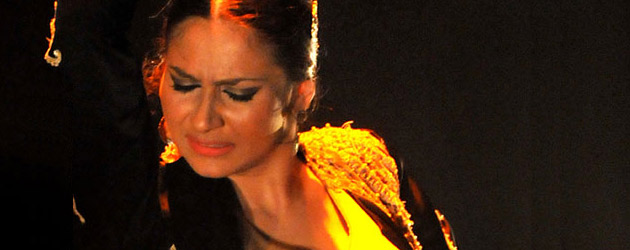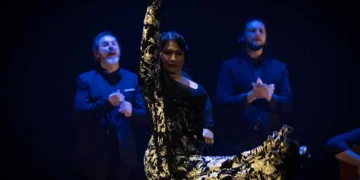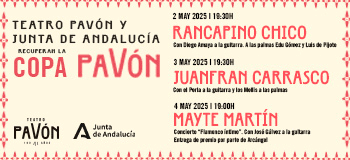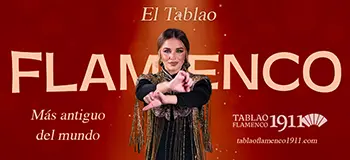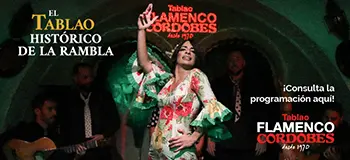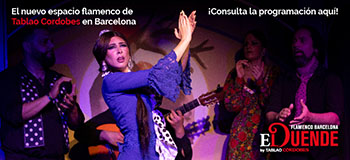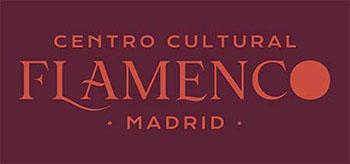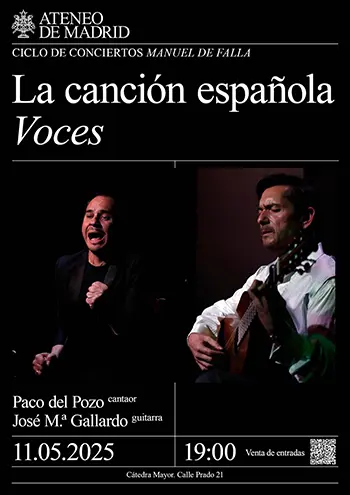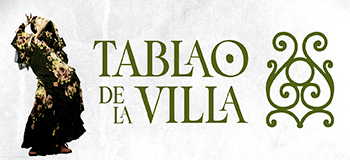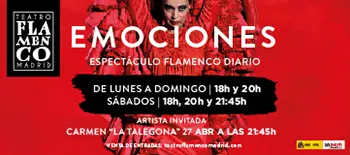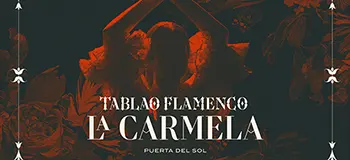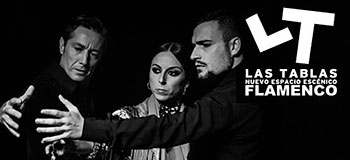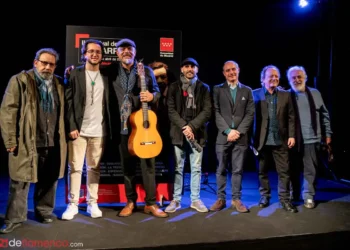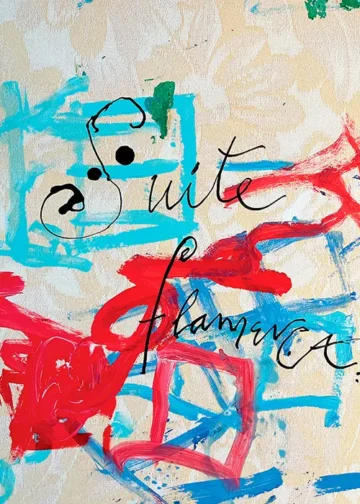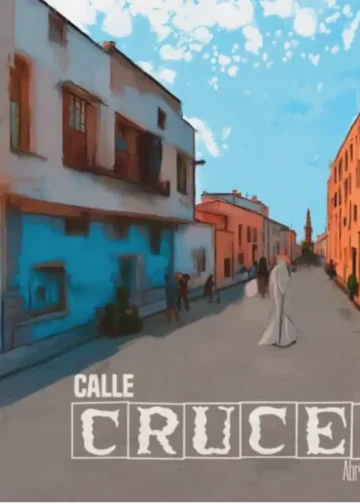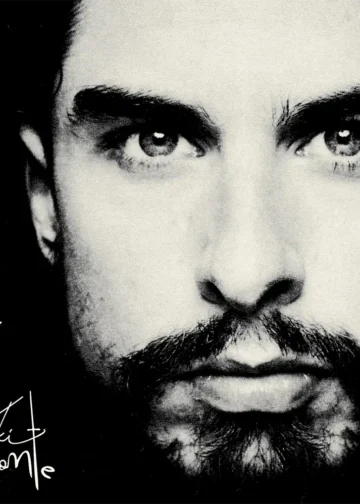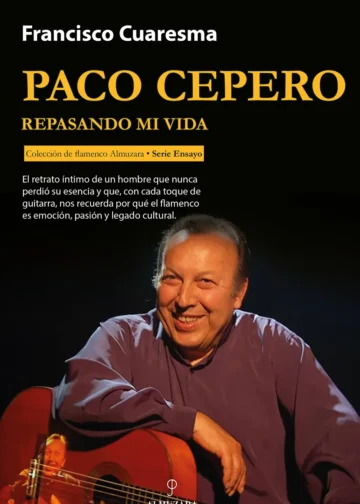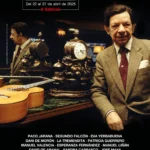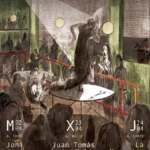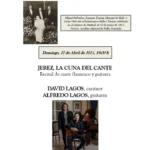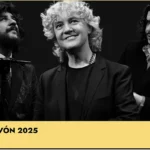Entrevista: Silvia Cruz Lapeña
The Mexican woman is the grand-niece of Carmen Amaya, she's 30 years old, has been living in Spain since the age of 18, and defends traditional dancing which she would never call contemporary.
«The flamenco I dance is pure and true»
Karime brings two worlds together in her spoken accent. Despite 18 years in Spain, she still maintains that mixture of sweetness and bluntness typical of Mexicans, although she often throws in Andalusian expressions. That mixture is also noticeable in her features: when you look at her face, you don't know if her eyes or skin are gypsy, or if it's Mexico you see reflected. Karime is the granddaughter of Antonia, one of the sisters of Carmen Amaya who stayed in Mexico in search of the stability her tours with La Capitana did not provide. Karime's father, Santiago Aguilar, is Mexican, and the day he walked into Antonia's dance school to learn flamenco, he found a dynasty, and fell in love with the teacher's daughter. And from that love was born Karime, «the generous one», which is what the name means in Arabic.

This woman with the intense gaze is 30 years old, but speaks with the voice of a sweet child, with no trace of the temperament she exhibits on stage. Because Karime is a dancer of strength, footwork and great speed. Perhaps this is why she makes such a fine partner for Farruquito with whom she has once again collaborated in Aristocracia Flamenca, a show offered last October at the Palau de la Música Catalana, and which put two flamenco dynasties on stage: the Farrucos and the Amayas. The show commemorated the 45th anniversary of Barcelona's Tablao El Cordobés, and the two dancers will again join forces on November 20th and 21st to round out a year full of celebrations.
«The audience receives us very affectionately, you can tell they're anxious to see Juan», says Karime, ceding center-stage to the grandson of the great Farruco. The shows at the Palau de la Música were a great success, but she does not hide the fact that the venue seems cold. «The people respond well, and the theater is beautiful, but I feel it's not the best place to present flamenco». In this show she was also with someone she considers the artist she best understands on stage: Belén López. «And not only dancing. The other day she showed me a piece of material she had bought to have a costume made, and it was the same fabric I'd bought without having seen hers. That's how much we're on the same wave-length».
A sweet voice and strong opinions
Karime began dancing as a child in Mexico, attending the dance school of her grandmother Antonia, and the latter's sister, Leonor. «I was immediately drawn to this, although I didn't consider making a career out of it. I liked it, I had a certain talent and took classes. But at that time it was just a fun thing to do». Having an entire family devoted to flamenco made the decision easier: her mother, Winy, also danced, and her brother and father played the guitar. Her grandfather was the singer Chiquito de Triana.
The softness of her tone of voice contrasts with the force of her opinions, which she expresses openly. This shows when she is asked about flamenco in her mother country of Mexico. «I don't like the flamenco done in Mexico. And I don't like it because I don't think there is a true following for flamenco. At a very young age, I realized they applaud anyone from Spain, regardless of whether or not they're any good», explains this woman who went to Spain at the age of 18. Since that time, Karime hasn't stopped working, and although she's the great-niece of Carmen Amaya, settling in Barcelona was pure chance as she says. «I lived in Madrid three years, and I'm in the south a lot, but I came for one month and ending up staying five years».
That's the amount of time she's been on contract at the Palacio del Flamenco, about which she can only say good things. «The tablaos were my schooling in Mexico, and I've also been in Japanese tablaos. And I can tell you, not anyone is right for this. My body is made to dance every day, and it's never monotonous, I like it. And I thank God for making me able to do so». She defends the concept of the tablao as a school, and also her source of income. Karime dances every day, and nearly every day does two shows. It's hard to imagine what that means physically and mentally, but for her, being used to it, performing in a theater is more grueling than the daily work at a tablao. «I love working at a theater, but it tires me physically and mentally ten times more, I suppose because of the nerves, and the amount of people who go to see you. And yes, I feel more pressure in that setting».
Working on a project of her own
One of the honors Karime received was in 2013 when she won the prize for Best Newcomer at the Festival de Jerez, although she considers the duet work with Farruquito in Abolengo to be the show that gave her the most exposure. She's a normal dancer, but she's very clear about what her style is. «The flamenco I dance is pure and true» she says firmly, and avoids defining her present artistic moment because she sees her career as a path. «Right now I'm neither better nor worse off than at other moment. I'd say I'm the same as always, learning, because I see flamenco as a constant process of learning».
Her flamenco is pure and true like she says, but she doesn't deprive herself of trying other dance styles. «I've danced with Lola Greco, Jesús Carmona, Joaquín Cortés and many other people with a different style from mine, and that has been enriching» says the dancer who likes to try different things, but also is very clear about what her line is. «Traditional flamenco is my thing. I might put some modern touches, but it's not contemporary. I can't sacrifice my truth».
Karime has always let it be known she would like to have her own company, and although that time has not yet come, what she's doing is organizing her own show. She's working on it, but it's a slow process. «My own project has to be done with intelligence, slow and steady, and with people I think ought to be with me» says the woman who starred in the documentary Bajarí, by director Eva Vila, in which she appeared with her mother Winy to explain the flamenco of Barcelona's gypsy community, of which Carmen Amaya continues to be the most important symbol.
Karime doesn't mind talking about her great-aunt, nor even the persistent questions, but she does not allow comparisons with La Capitana, «neither positive nor negative». She says it used to be more difficult, but what she can't stand is as soon as a good flamenco dancer gets up on stage, she's compared with the Barcelona gypsy. «It's horrible, because Carmen is a legend, she's something else, you can't compare her with anyone. It makes me furious those comparisons». And the accent is halfway between Mexican and Andalusian.



